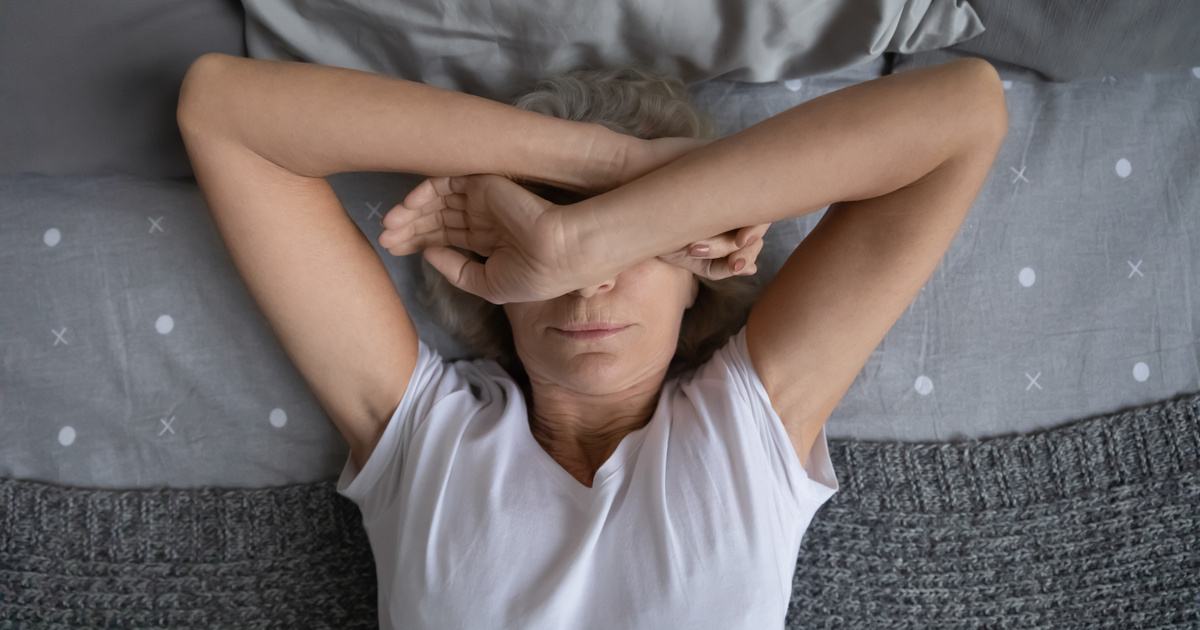Most people in their families, communities and environments have already noticed this phenomenon when older people go to bed earlier than almost everyone else, and then at the crack of dawn – when some night owls prepare for bed – they begin their sleep. Morning routine.
For this reason, most people consider all this as a kind of stereotype, according to which young people shout until dawn, and old people and pensioners start vacuuming and grinding meat at dawn – however, according to researchers, this is not just unfairness.
Because, as it turns out, this stereotype has a basis in truth in reality
It’s actually part of the natural aging process.
As we’ve written many times, sleep experts recommend adults sleep seven or more hours a night, and if they can, do so at the same time every night — thus avoiding false awakenings.
Although most people try to maintain this, the average time a person sleeps at night decreases by 30 minutes over ten years from age 30, so people go to bed earlier and wake up earlier as they get older. As he writes. IFL Science.
Everything is decided in the head
Aging and the associated early going to bed and waking up can be explained mainly by the functioning of the brain and its changes, because like many other parts of the body, the brain no longer reacts as quickly in old age as it used to.
Perhaps the brain does not perceive and respond to input signals as it should because the brain also ages
said Dr. Seeram Parthasarathy, director of the Department of Sleep and Circadian Sciences at the University of Arizona Health Sciences Center.
These input signals are information that helps us determine what time of day we are, such as light or dark, work hours, or different meals. This is also why a person quickly loses sense of time if he is in a dark room for a long time without food or light.
Teenage brains can still process these signals successfully and quickly, but in older people, these signals are not associated due to normal brain degeneration.
This is one of the reasons why older people feel tired earlier than the younger generation, and it may also cause them to go to bed earlier and wake up earlier than others.
It can also cause deterioration of vision
The eyes also play a big role in perceiving external signs, and it probably goes without saying that people’s eyesight also deteriorates as they age.
Age-related vision problems reduce the intensity of light stimulation our brain receives, which plays an important role in setting and maintaining our biological clock.
– Professor Cindy Lustig, a researcher at the Cognition and Aging Laboratory at the University of Michigan, noted.
All of this can greatly affect those who suffer from cataracts, a condition that typically affects members of the older generation. In their case, for example, evening light enters the eye less, so the brain thinks that sunset occurs earlier than it actually does. This affects the level of melatonin in the body.
Melatonin is often known as the sleep hormone, the levels of which typically begin to rise as the sun sets. If it is due to the presence of cataracts
The brain believes that the sun sets earlier than it actually sets, so a person’s melatonin level may rise earlier, and this may also lead to an increased need for sleep.
Knowing this, the fact that someone goes to bed early and wakes up early is not a sign of some annoying fad or boredom, but rather a normal part of aging and its accompanying health detriments – which can also affect people who were previously known as real people. Night owls over time.












































